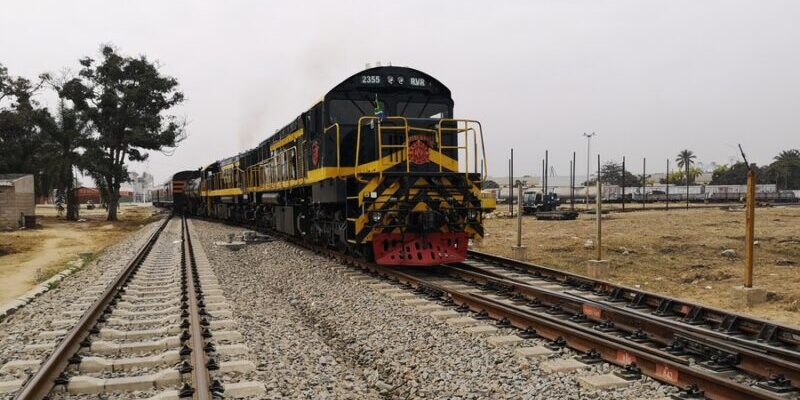Lobito Corridor Vital for Zambian Economy
The Zambian consul in Moxico highlights the importance of the Lobito Corridor for Zambia’s economic development. He also mentions that Zambia plans to purchase new locomotives to improve passenger comfort and goods transportation.
The consul expresses confidence in Angola’s political stability and security.
Regarding the official transfer of the concession of rail services and logistics support for the Lobito Corridor, the consul, as the Zambian consul in Moxico, shares his positive views on the role of the Benguela Railway in economic development.
When asked about the construction of the railway branch connecting Zambia to Angola, the consul explains that there is already funding of approximately US$250 million for the construction. The railway will start in Zambian territory and extend to the municipality of Luacano in Moxico province.
The consul emphasizes that the opening of the Lobito Corridor through this railway branch will increase tourism and facilitate travel for many people. Currently, due to a lack of transportation options, Zambians have to go through South Africa to reach Luanda, incurring high costs.
In terms of Zambia’s readiness for the challenges ahead, the consul admits that the country currently has outdated locomotives. However, Zambia intends to acquire new locomotives to enhance passenger comfort and goods transportation.
He discusses the prospects for Zambia, stating that using the Benguela Railway will save the country significant transportation costs. Since copper mines and other minerals are located close to the railway, transporting goods through the Lobito Corridor to the ocean is more cost-effective than using trucks to reach South Africa.
Regarding security, the consul emphasizes Angola’s political stability and peaceful environment, assuring that Zambian goods will not be at risk during transportation. In contrast, the Democratic Republic of Congo (DRC), which was previously used as a transit route to Lobito, has been experiencing armed conflicts for years.
He mentions the trade in agricultural products available in Angolan stations, highlighting the potential for production and consumption. The Zambian Consulate in Moxico closely monitors this aspect.
The consul acknowledges an increase in the movement of Angolans and Zambians between the two countries in recent years, for various reasons such as family visits, trade, medical treatment, and education.
Finally, he clarifies that there is no need to obtain a visa to travel to Zambia. Travelers can purchase a safe-conduct at the border for the trip.
72 total views , 1 views today





